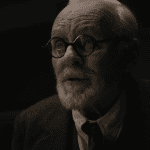
A decade ago, 12 Years a Slave was stirring the Oscar stew. Though the Best Picture field included some outstanding films (Including American Hustle, Gravity and The Wolf of Wall Street), most prognosticators pegged Steve McQueen’s searing historical epic as the film to beat. Sure enough, it won Oscar’s highest accolade, and took home two other Academy Awards as well—for Best Adapted Screenplay and Best Supporting Actress (for Lupita Nyong’o’s searing performance as a horrifically abused slave).
It also spelled the start for what I think has been an unparalleled 10 years for race-themed dramas—dramas that remind us, often painfully, of the United States’ racist past, and ones that suggest how far we still have to go.
The movies below impacted me deeply—sometimes introducing me to people and stories that I knew little about before. Many of them are flavored with the redemptive tang of faith. The majority of them were Oscar contenders in their own right. And because most of these are historical dramas, I’m putting them roughly in the order in which their stories fall in history. And the first is …
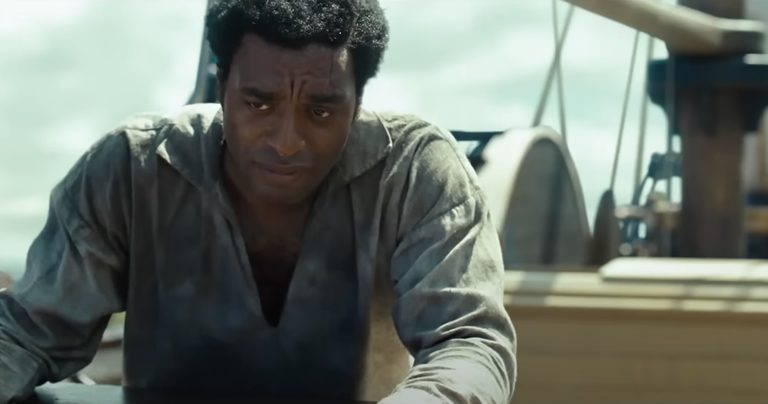
12 Years a Slave (2013, R)
In 1841, free-born African American musician Solomon Northup (Chiwetel Ejiofor) travels from his home in Saratoga, New York, to Washington, D.C. He expected to be separated from his wife and family for just three weeks as he plays his violin for a circus. Instead, he’s drugged, kidnapped and taken to Louisiana, where he spends the next dozen years dealing with unimaginable horrors.
But that’s not quite right, is it? Because 12 Years a Slave shows us those horrors in gripping, sickening detail. Solomon and his fellow slaves are whipped, beaten and sometimes killed. In one scene, Solomon is nearly hung—dangling by the neck from a rope, his toes barely touching the ground for hours upon hours. This movie, based on Northup’s own account, depicts terrible pain and abuse, and in so doing inflicts a level of suffering on those who watch it. But, at least, there’s a purpose behind the pain: It brings home the horror of slavery, and it stamps those horrors indelibly in your mind.
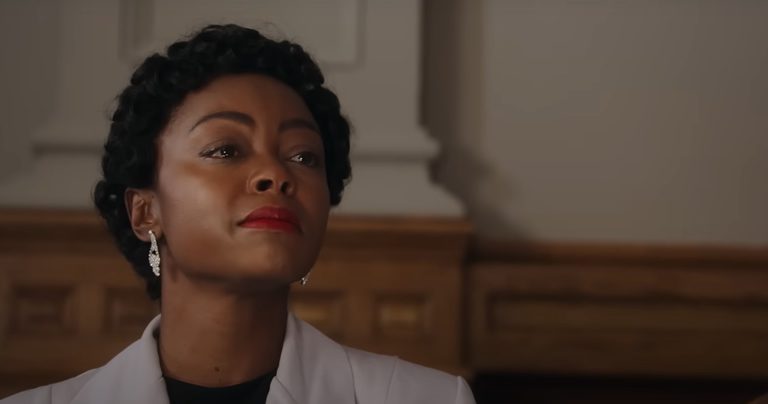
Till (2022, PG-13)
Taking place in 1955, more than a century after Solomon Northup was kidnapped and 90 years after the close of the Civil War, we see how much things have changed. In the north, that is. Things aren’t perfect by any means, but Mamie Till-Mobley (Danielle Deadwyler) has built a nice life for she and her son, Emmett, in Chicago. But Emmett wants to go down south to visit family. And Mamie reluctantly allows him to go, begging him to keep his head down, his voice low and return to her safe and sound. She never saw her son alive again.
Till recounts the tragic, terrible death of Emmett Till. But it also chronicles his mother’s transformation from a grieving parent to a Civil Rights activist—a transformation that perhaps was connected to her deep Christian faith. The film didn’t receive a single Oscar nomination—even for Deadwyler’s extraordinary performance—which I consider a travesty. This important, difficult and ultimately inspirational film is well worth a watch.
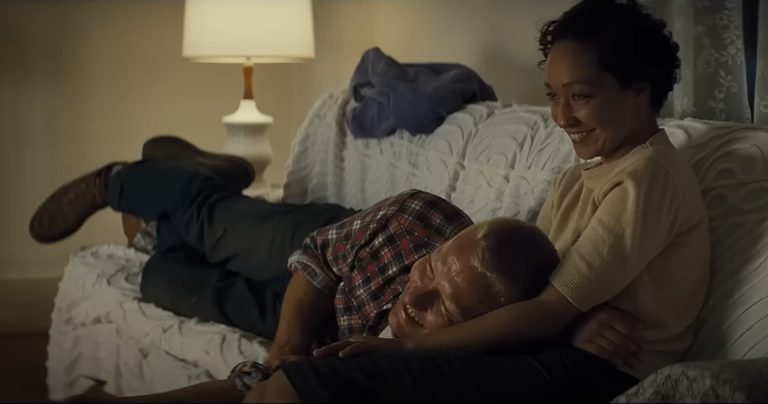
Loving (2016, PG-13)
They knew that interracial marriage just wasn’t done in Virginia. But Mildred and Richard Loving tied the knot anyway in June 1958, sealing their relationship in Washington D.C. While they expected to face plenty of challenges in their hometown of Central Point, Virginia, neither likely expected the local sheriff to burst into their home in the middle of the night and arrest the both of them. To avoid jailtime, the Lovings were forced to leave the state. But Mildred missed her hometown and family. And in 1965, she and Richard embarked on a legal odyssey that would last for years and shake Jim Crow laws across the South.
Most world-rocking events play on a huge cinematic scale. But Loving is, at its core, a love story—an inherently intimate look at two people who simply want to be acknowledged as husband and wife. Mildred (played by Ruth Negga, who was nominated for her work here) is well aware that their legal fight will have massive implications. Richard (an equally excellent Joel Edgerton) just wants to be with the woman he loves. Loving is most compelling when it’s at the couple’s home, not in the courtroom. And that makes it all the more powerful.
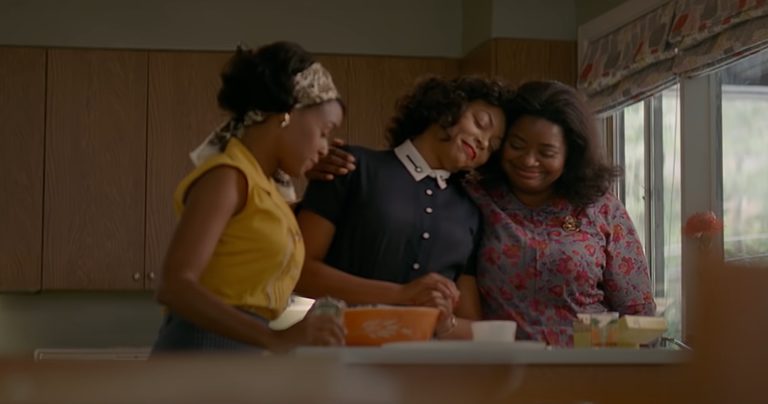
Hidden Figures (2016, PG-13)
Till and Loving are both movies predicated on the letter of American law—and changing that law when it’s clearly unfair. Hidden Figures tackles something perhaps even more insidious: Everyday prejudice that the law struggles to touch. You might not expect that sort of prejudice in the bowels of the American space program in 1961—even though it was headquartered in Virginia, the same state that had exiled the Lovings just two years before. But racism and sexism is very much alive in Langley’s Air Force Base. That puts Katherine Goble, Mary Jackson and Dorothy Vaughan at a distinct disadvantage. But here’s the thing: The U.S. is in a high-stakes space race with the Soviet Union, and as such, NASA needs all the talent it can find—regardless of race or sex. And these three women? They’re as talented as they come.
All the movies on this list can make you think. But this, more than any other here, will make you smile. Anchored by three sparkling performances (Taraji P. Henson as Katherine Goble Johnson, Octavia Spencer as Dorothy Vaughan and Janelle Monae as Mary Jackson) and nominated for three Oscars, including one for Best Picture, Hidden Figures is an entertaining, inspiring treat. And while few have the stomach to watch 12 Years a Slave more than once, this is one film you might find yourself watching again and again.

Selma (2014, PG-13)
The fight for Civil Rights has birthed plenty of heroes over the generations. But no single figure represents the Civil Rights movement more than Martin Luther King Jr., and arguably no single protest was as pivotal as the King-led march from Selma to Montgomery.
That event, which illustrated the power of King’s non-violent forms of protest and brought the horrors of racism into American living rooms across the country, gets a movie worthy of the moment in Selma—my favorite film of 2014. Though it was nominated for two Oscars (including for Best Picture) and won one (for John Legend’s song “Glory”), it should’ve been nominated for loads more—especially David Oyelowo’s complex portrayal of King himself. And it emphasizes the role that faith played in King’s life and quest for Civil Rights. As I said in this blog, “King was not a man who used religion as a tool for civil rights. He saw himself as that tool—held by the hand of the Almighty.”
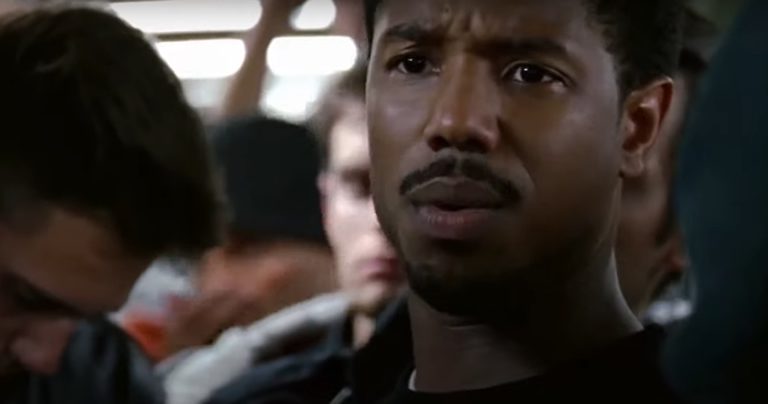
Fruitvale Station (2014, R)
If only the fight for equality could’ve ended in victory with that march from Selma. If only King’s “I Have a Dream” speech had marked the end of racism. We all know that racial tension is still alive and healthy in the United States—and Fruitvale Station reminds us of such.
Oscar Grant (played by Michael B. Jordan) is no hero. He’s a convicted felon, sometime drug dealer and a guy who, as the movie opens in January 2009, is determined to do better. Would he have made good on that? We’ll never know: As we learn in the opening moments of Fruitvale Station, he never had the chance. Oscar was killed by police in a night of ever-escalating tensions. Later in court, the police officer who killed Oscar had meant to shoot him with a Taser—and fired the gun by mistake. Fruitvale Station is a powerful but difficult movie to watch, given its unfurling tragedy. But it feels like both a reflection of the time it takes place (2009), the time it was made (2014, in the formative days of the Black Lives Matter movement) and our own time, too.
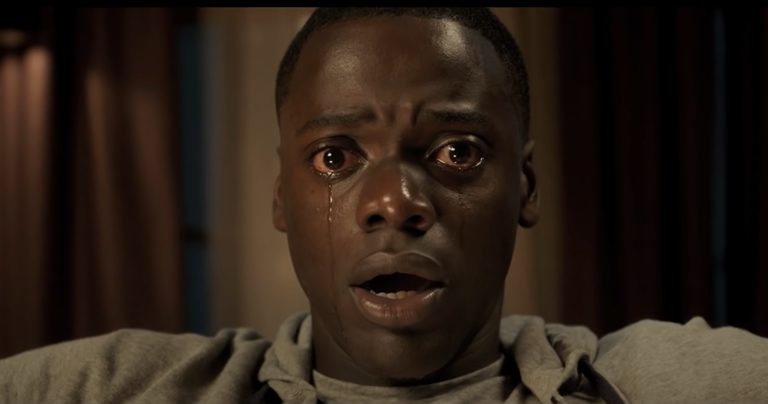
Get Out (2017, R)
We’ve spent most of this list looking at historical dramas. For the last film here, I wanted to turn to something a little more imaginative: Jordan Peele’s breakout horror piece Get Out. The story’s victim/hero is Black photographer Chris Washington (Daniel Kaluuya), who’s a little nervous about meeting the parents of his girlfriend, Rose. Chris worries that Rose’s parents might not be cool with their interracial romance. Rose insists that her parents aren’t racist in the least. But is that true?
Get Out, an insightful and challenging horror satire, lands on this list because it, more than any other film I’ve seen lately, reminds me what a wriggly thing racism can be. Rose’s parents constantly trumpet how un-racist they are—but some deeply troubling things are at work underneath the surface. At turns funny and frightening, Get Out earned four Oscar nominations, including three for Peele himself (for Best Picture, Director and Original Screenplay).
Certainly, this list of films suggests how far race relations have come since the events of 12 Years a Slave. But Get Out reminds us that, for now, many believe that King’s “I Have a Dream” speech remains, in part, still a dream.



